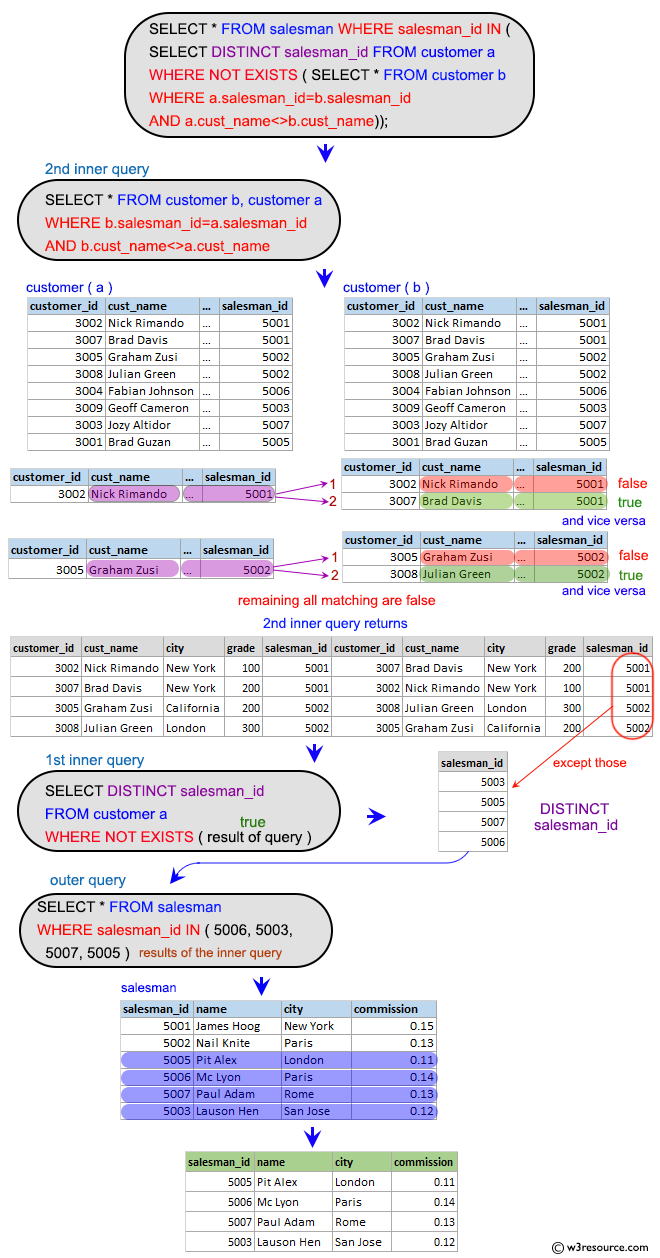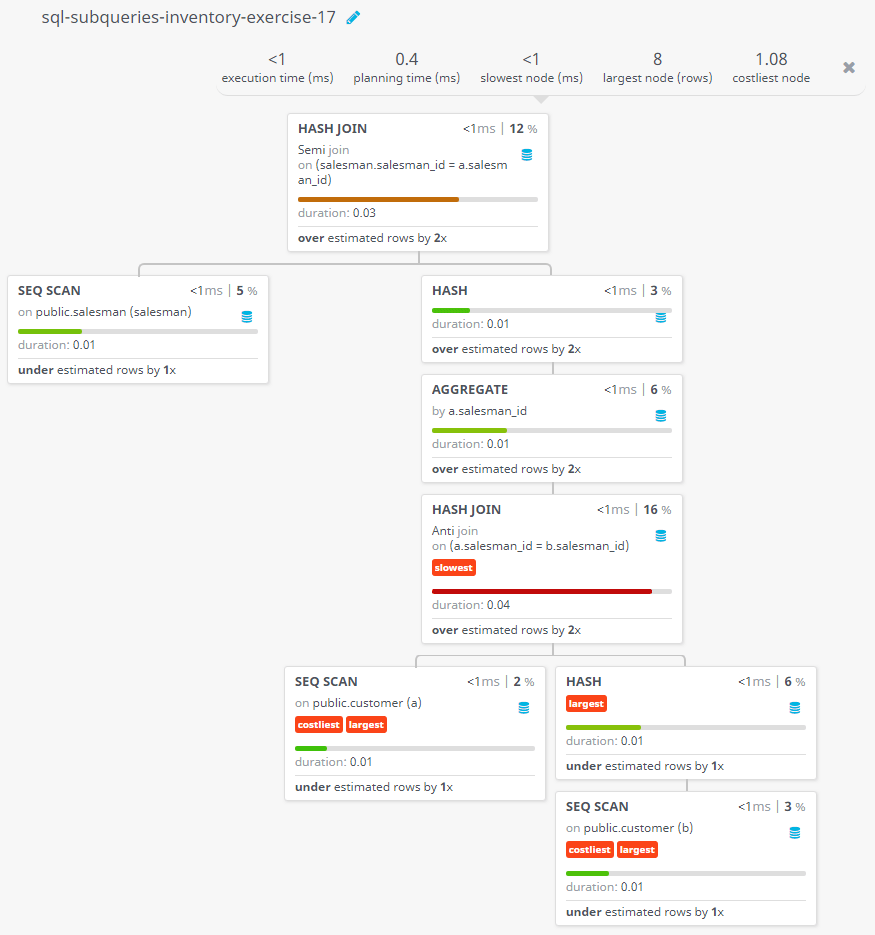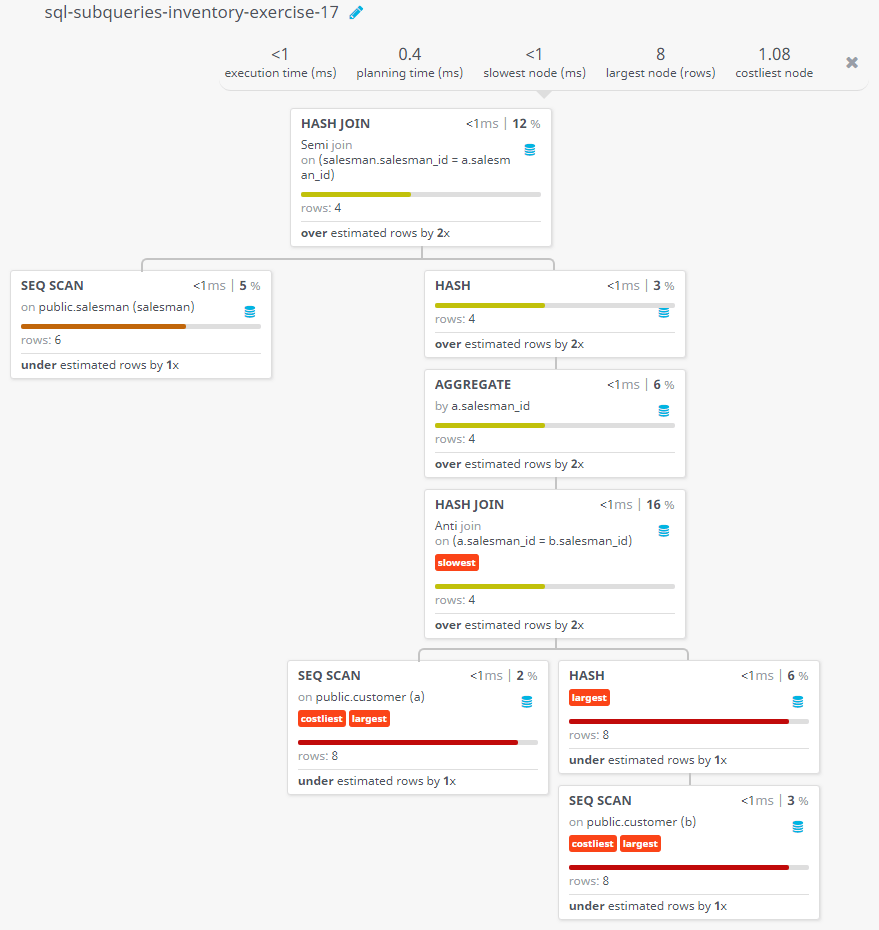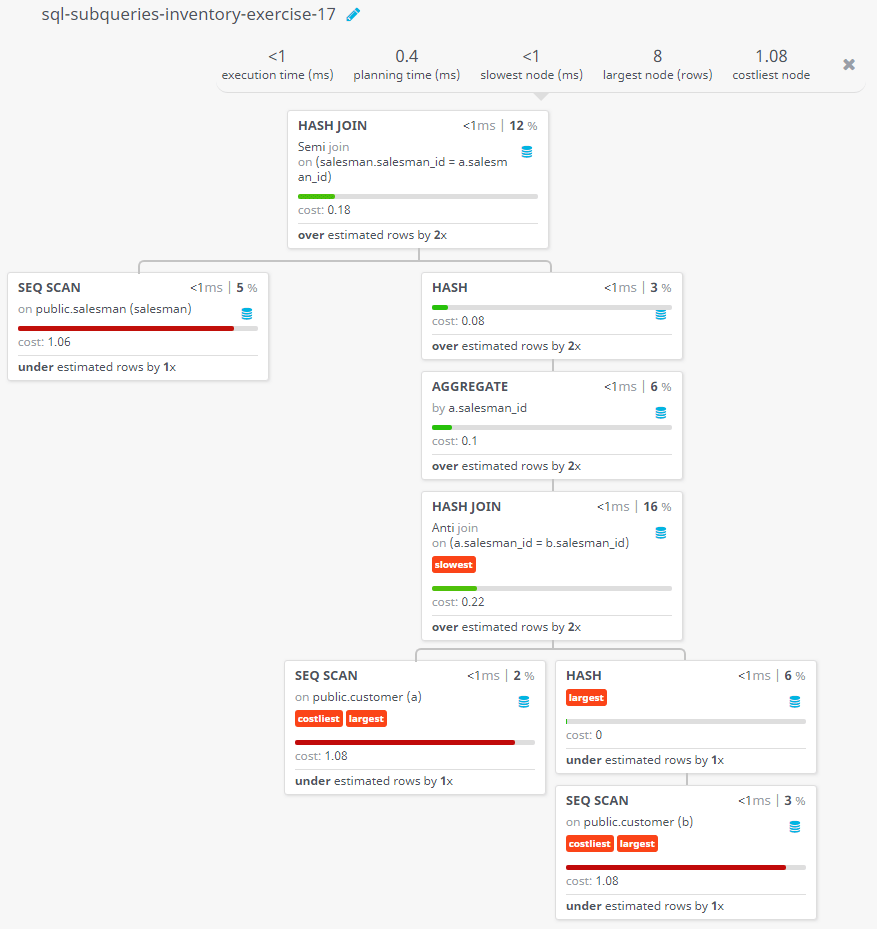SQL Exercises: Find all the salesmen worked for only one customer
17. Find Salespeople Handling Only One Customer
From the following tables write a SQL query to find salespeople who deal with a single customer. Return salesman_id, name, city and commission.
Sample table : Customercustomer_id cust_name city grade salesman_id ----------- ------------ ---------- ---------- ----------- 3002 Nick Rimando New York 100 5001 3005 Graham Zusi California 200 5002 3001 Brad Guzan London 100 5005 3004 Fabian Johns Paris 300 5006 3007 Brad Davis New York 200 5001 3009 Geoff Camero Berlin 100 5003 3008 Julian Green London 300 5002 3003 Jozy Altidor Moncow 200 5007Sample table: Salesman
salesman_id name city commission ----------- ---------- ---------- ---------- 5001 James Hoog New York 0.15 5002 Nail Knite Paris 0.13 5005 Pit Alex London 0.11 5006 Mc Lyon Paris 0.14 5003 Lauson Hen San Jose 0.12 5007 Paul Adam Rome 0.13
Sample Solution:
-- Selecting all columns from the 'salesman' table
SELECT *
-- Specifying the table to retrieve data from ('salesman')
FROM salesman
-- Filtering the results based on the condition that 'salesman_id' is in the result of a subquery
WHERE salesman_id IN (
-- Subquery: Selecting distinct 'salesman_id' from the 'customer' table (aliased as 'a')
SELECT DISTINCT salesman_id
-- Specifying the table to retrieve data from ('customer' as 'a')
FROM customer a
-- Checking the non-existence of records in a subquery
WHERE NOT EXISTS (
-- Subquery: Selecting any record from the 'customer' table (aliased as 'b') where 'salesman_id' matches the outer query's 'salesman_id' and 'cust_name' is not equal
SELECT * FROM customer b
-- Specifying the table to retrieve data from ('customer' as 'b')
WHERE a.salesman_id = b.salesman_id
AND a.cust_name <> b.cust_name
)
);
Output of the Query:
salesman_id name city commission 5005 Pit Alex London 0.11 5006 Mc Lyon Paris 0.14 5007 Paul Adam Rome 0.13 5003 Lauson Hen San Jose0.12
Explanation:
The said SQL query that selects all columns from the 'salesman' table where the "salesman_id" column appears in a subquery. The subquery selects the distinct "salesman_id" values from the 'customer' table (aliased as 'a') where there does not exist at least one record in the same 'customer' table (aliased as 'b') where the "salesman_id" value in 'a' is equal to the "salesman_id" value in 'b' and the "cust_name" value in 'a' is not equal to the "cust_name" value in 'b'.
In other words, it's retrieving all the rows from the 'salesman' table where the salesman has all customers with the same name. It is using the IN clause which is used to filter the rows from the table based on the values returned by the subquery. The NOT EXISTS clause is used to filter out the rows that do not match the condition.
Visual Explanation:
Go to:
PREV : Find Salespeople Handling Multiple Customers.
NEXT : Find Salespeople Handling Customers with Multiple Orders.
Practice Online
Sample Database: inventory
Query Visualization:
Duration:
Rows:
Cost:
Contribute your code and comments through Disqus.
What is the difficulty level of this exercise?
Test your Programming skills with w3resource's quiz.





